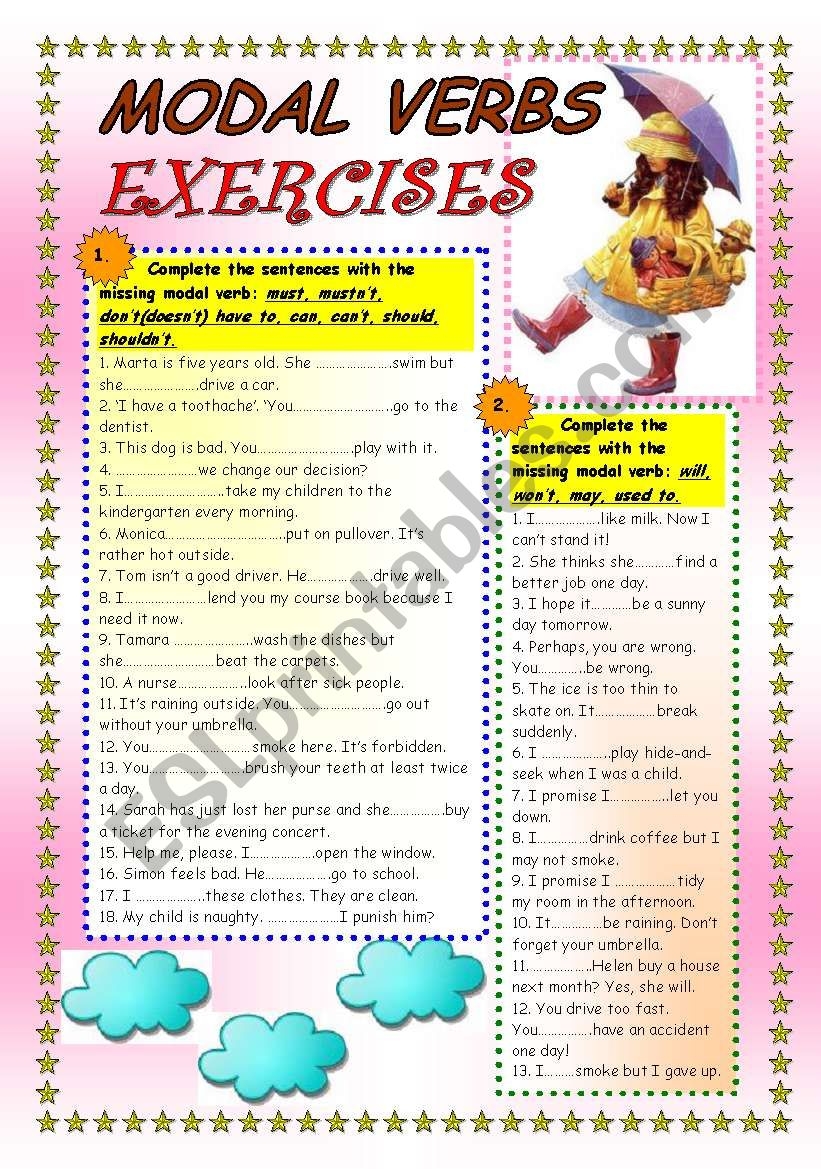Learning English as a second language can be challenging, especially when it comes to mastering modal verbs. These verbs play a crucial role in expressing ideas such as possibility, necessity, ability, and permission. Understanding how to use modal verbs correctly can greatly enhance your communication skills in English.
Modal verbs are a unique subset of verbs in English that are used to indicate a speaker’s attitude towards the likelihood or necessity of an action. They are different from regular verbs in that they do not follow the standard rules of conjugation. Instead, they are followed by the base form of a verb.
ESL Modal Verbs
There are several common modal verbs in English, including “can,” “could,” “may,” “might,” “must,” “shall,” “should,” “will,” “would,” and “ought to.” Each of these modal verbs has its own unique meaning and usage. For example, “can” is used to express ability, while “must” is used to indicate necessity.
Modal verbs can also be used to make requests, give advice, and express possibility or certainty. For example, “Could you please help me with this?” is a polite request using the modal verb “could.” Similarly, “You should study for the exam” is advice using the modal verb “should.”
It is important to note that modal verbs do not require an additional auxiliary verb in a sentence. They can stand alone and convey the intended meaning. For example, “She can speak Spanish fluently” is a complete sentence using the modal verb “can” without the need for an auxiliary verb.
Practice is essential when it comes to mastering the use of modal verbs in English. Try incorporating them into your daily conversations and writing exercises to become more comfortable with their usage. Additionally, seeking feedback from teachers or native English speakers can help you improve your proficiency with modal verbs.
In conclusion, ESL modal verbs are a valuable tool for expressing ideas of possibility, necessity, ability, and permission in English. By understanding the meanings and usage of common modal verbs, you can enhance your communication skills and become a more fluent English speaker. Practice regularly and seek feedback to improve your proficiency with modal verbs and take your language skills to the next level.
